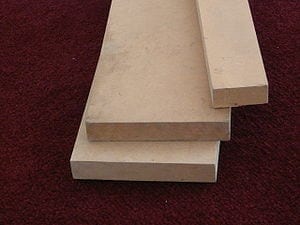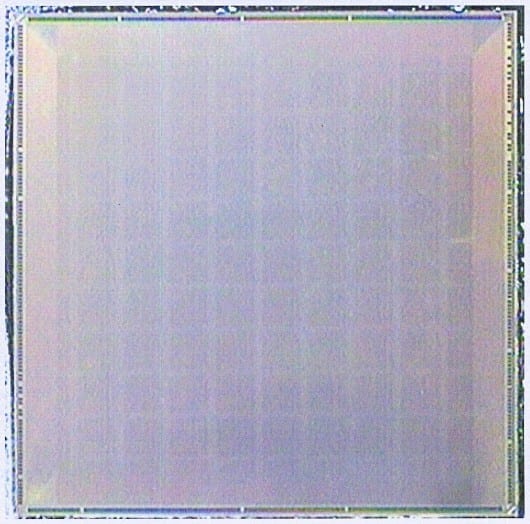
Natural sources including potatoes help to create new award-winning product
A new biodegradable and recyclable form of medium density fibreboard (MDF) has been created that could dramatically reduce the problem of future waste. Today (31 October), Professor Andrew Abbott is awarded the Royal Society Brian Mercer Award for Innovation 2013 that will help him make the critical step from prototype to product.
Almost one million tonnes of MDF is produced in the UK every year. It is a cheap and popular engineered wood product widely used for furniture and other products in homes, offices and retail businesses. However, as MDF cannot be recycled, waste MDF either has to be incinerated or ends up in landfill.
Professor Abbott and his team at the Department of Chemistry at the University of Leicester have developed a new wood-based product similar to MDF that uses a resin based on starch from completely natural sources, including potatoes.
Professor Anthony Cheetham, Vice President and Treasurer of the Royal Society said: “It is impressive to see someone take a material that is commonplace in all of our homes and solve its key limitations. Professor Abbott has managed to re-invent MDF, transforming it into a product that has much more relevance in an environmentally conscious society.”
A significant proportion of MDF is used for short term applications in the retail sector. The use of a material which can either be recycled or composted would be a significant benefit to an industry often criticised for the amount of waste it generates.
MDF is made by breaking down bits of wood into wood fibres, which are then pressurised and stuck together with resin and wax. The resin is currently composed of urea and formaldehyde (UF), the use of which is restricted due to health concerns. Professor Abbott’s new resin means that the use of UF is avoided and therefore so too are the associated concerns.
With the aid of colleagues at the Biocomposites Centre, Bangor University and the Leicestershire-based retail design company Sheridan and Co., his team have produced starch-based boards which have been made into retail display units.
Professor Abbott’s new material is easier to manufacture and easier to work with than current MDF boards.
The practical studies were led by Dr Will Wise who said: “It has been a technological challenge to develop material with the correct properties, but it is a great thrill to see the finished boards which look identical to the MDF which is so commonly used.”
The new material is easier to manufacture than existing MDF as the components are easily pre-mixed and only set on the application of heat and pressure; end user feedback suggests it is also easier to work with than currently available MDF boards.
Go deeper with Bing News on:
Recyclable MDF
- Australian businesses ramp up recycling ahead of new climate rules
BINGO Industries CEO Chris Jeffrey. “Partnerships like supplying alternative fuel for use in cement kilns and providing recovered engineered timber to manufacture recycled MDF [reprocessed timber ...
- ANDRITZ Enhances Sustainability and Efficiency at Essity’s Paper Mill in Prudhoe
International technology group ANDRITZ has completed the upgrade of the combustion system on a through-air drying (TAD) tissue machine at Essity' ...
- I tried the Fluance RT85, and it's the best turntable you can get for $500
Fluance's budget-friendly record players continue to impress as setup staples for beginners and audiophiles alike.
- The Most Curious Finds at Milan Design Week
From ergonomic stemware to wireless track lighting, WWD highlights the novelties that set the tone at the latest design season.
- ANDRITZ to Rebuild OCC Lines for PT. Pakerin in Indonesia
International technology group ANDRITZ has secured an order from PT. Pabrik Kertas Indonesia (PT. Pakerin) to revamp two existing OCC lines at it ...
Go deeper with Google Headlines on:
Recyclable MDF
[google_news title=”” keyword=”Recyclable MDF” num_posts=”5″ blurb_length=”0″ show_thumb=”left”]
Go deeper with Bing News on:
Recyclable form of medium density fibreboard
- How to Build a Sustainable Retreat
Besides no site excavation, we avoided building a form, hauling wheelbarrows full of concrete ... The flooring is essentially a “cork sandwich” with a medium density fiberboard (MDF) core. The cork ...
Go deeper with Google Headlines on:
Recyclable form of medium density fibreboard
[google_news title=”” keyword=”recyclable form of medium density fibreboard” num_posts=”5″ blurb_length=”0″ show_thumb=”left”]









